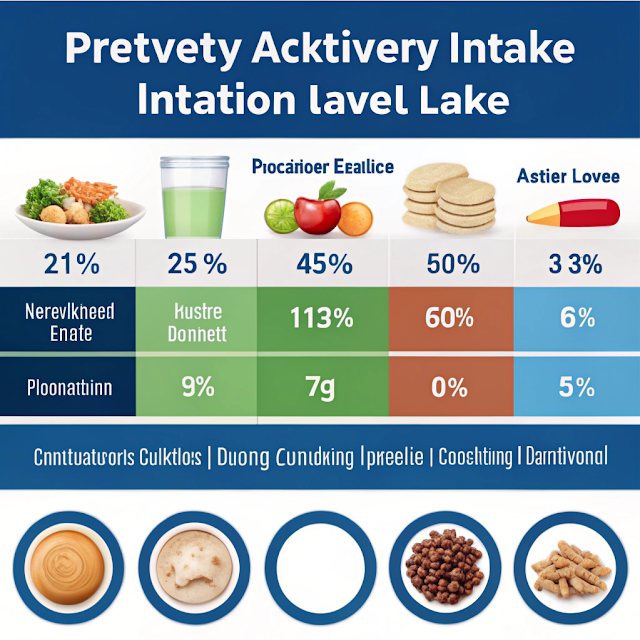1. Introduction to Protein
Protein is one of the three macronutrients essential for human health, alongside carbohydrates and fats. It is composed of amino acids, which are the building blocks of every cell in our body. Proteins play a crucial role in a variety of bodily functions, including cellular function, tissue repair, and enzyme production.
Without adequate protein intake, the body cannot efficiently repair tissues, synthesize hormones, or produce enzymes necessary for digestion and metabolism. Given its fundamental importance, maintaining an appropriate protein intake is vital for overall health.
 |
| The Benefits of Protein for Muscle Growth and Overall Health |
2. Protein and Muscle Growth
When it comes to muscle growth, protein is paramount. The amino acids derived from dietary protein are crucial for muscle repair and development. Here’s how it works:
Muscle Protein Synthesis: After exercise, the body enters a recovery phase where it repairs muscle fibers that were damaged during physical activity. Consuming protein stimulates muscle protein synthesis, a process that leads to increased muscle mass and strength.
Types of Protein: Not all proteins are created equal. There are various types, including whey, casein, and plant-based proteins such as soy and pea. Whey protein, derived from milk, is known for its rapid absorption and effectiveness in stimulating muscle growth. In contrast, casein digests slowly, providing a sustained release of amino acids. Plant-based proteins, while generally considered lower in some essential amino acids, can be highly effective when consumed in combination.
Protein Timing: Consuming protein around workout times—either before or after exercise—can significantly enhance muscle recovery and growth. This practice, often referred to as nutrient timing, ensures that the body has the necessary resources to repair and build muscle effectively.
 |
| The Benefits of Protein for Muscle Growth and Overall Health |
3. Recommended Protein Intake
Determining the appropriate amount of protein needed can vary significantly based on activity levels:
Daily Recommended Intake: The general guideline for protein intake is approximately 0.8 grams of protein per kilogram of body weight for sedentary adults. However, athletes or those engaged in regular strength training may require 1.2 to 2.0 grams per kilogram to support muscle growth and recovery.
Differences Between Individuals: Average individuals and athletes or bodybuilders have different protein requirements due to varying levels of physical activity. While an average person may need a standard amount, athletes often require higher levels to support their training and recovery needs.
Protein Supplementation: For those who struggle to meet their protein requirements through food alone, protein supplements—such as protein powders—can be beneficial. These supplements can provide a convenient and efficient source of protein, especially for athletes with increased protein needs.
 |
| The Benefits of Protein for Muscle Growth and Overall Health |
4. Protein for Overall Health
In addition to its benefits for muscle growth, protein also plays a vital role in overall health:
Weight Management: Protein is known for its ability to enhance satiety, helping individuals feel full for longer periods. This can lead to reduced appetite and help with weight control, making it an essential component of a balanced diet for those looking to lose or maintain weight.
Bone Health: Contrary to the belief that a high-protein diet might harm bone health, emerging research suggests that adequate protein intake is critical for maintaining strong bones and preventing bone loss. Protein provides the necessary amino acids that aid in bone repair and maintenance.
Metabolism Boost: Consuming protein can also increase thermogenesis, the process by which the body generates heat and energy from digesting food. This can lead to a boosted metabolism, assisting in fat loss and overall body composition improvement.
Immune System Support: Proteins are essential for producing antibodies and other immune system components, helping the body fend off infections and illnesses. A diet rich in protein can therefore support overall immune function.
 |
| The Benefits of Protein for Muscle Growth and Overall Health |
5. Sources of Protein
There are a variety of protein sources available:
Animal-based: Rich sources of protein include meat, fish, eggs, and dairy products. These sources provide complete proteins, containing all the essential amino acids.
Plant-based: For those following a vegetarian or vegan diet, sources such as legumes, tofu, nuts, and grains offer alternative protein options. It’s important to combine different plant sources (like beans and rice) to ensure a complete amino acid profile.
Complete vs. Incomplete Proteins: While animal proteins are typically complete, most plant proteins are considered incomplete. This means they may lack one or more essential amino acids. Understanding this distinction can help individuals optimize their protein intake.
 |
| The Benefits of Protein for Muscle Growth and Overall Health |
6. Protein Myths
Despite its benefits, several misconceptions exist regarding protein intake:
"Too much protein is bad for the kidneys": This myth stems from outdated information and is generally not supported by current research. In healthy individuals, moderate to high protein intake does not negatively affect kidney function. However, those with pre-existing kidney conditions should consult with a healthcare provider.
Importance of Moderation and Balance: While protein is vital, it’s crucial to maintain a balanced diet that includes a variety of nutrients. Overemphasis on protein at the expense of other food groups can lead to nutrient deficiencies.
 |
| The Benefits of Protein for Muscle Growth and Overall Health |
7. Conclusion
In conclusion, protein is an indispensable nutrient with numerous benefits for muscle growth and overall health. From aiding in muscle repair to supporting weight management and immune function, adequate protein intake is essential for everyone, especially active individuals. Emphasizing a balanced, protein-rich diet can enhance fitness, promote well-being, and contribute to a healthier lifestyle.
